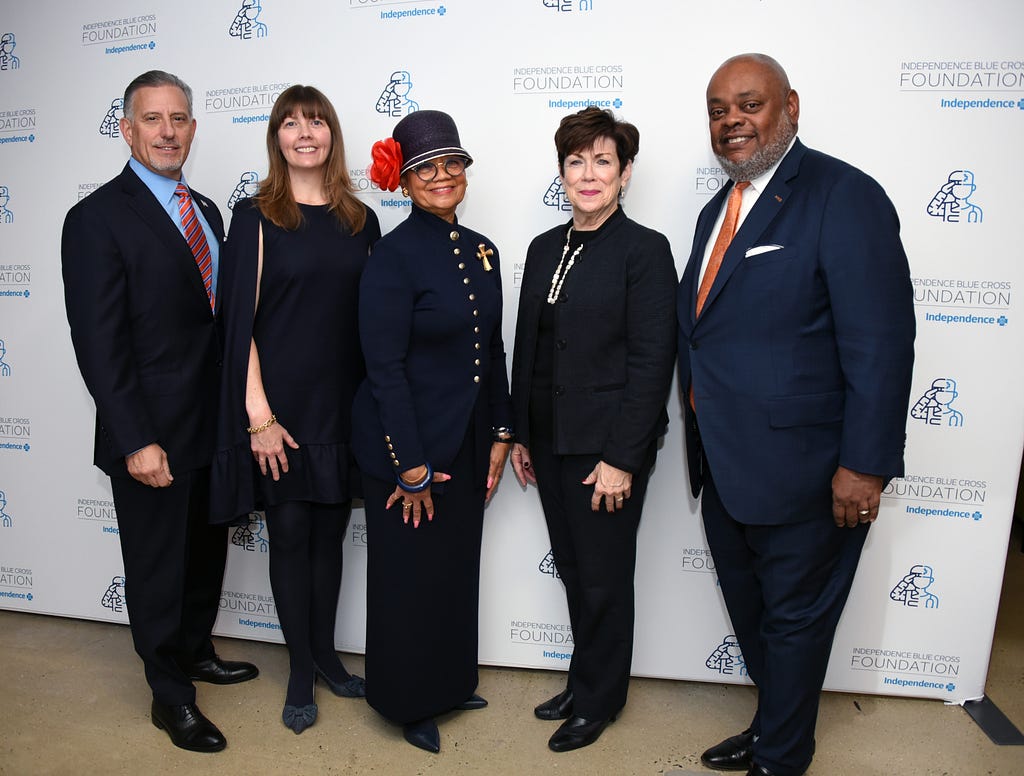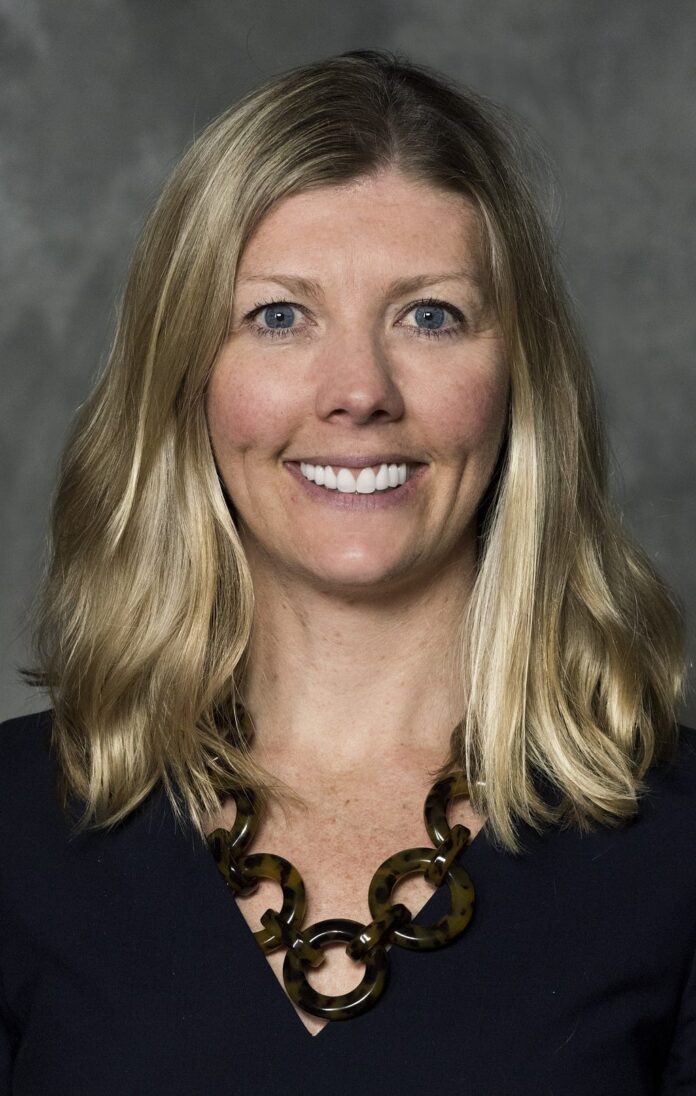High Impact Philanthropy: Heather Major Of Independence Blue Cross Foundation On How To Leave A Lasting Legacy With A Successful & Effective Nonprofit Organization
An Interview with Karen Mangia
Build and rebuild your team. In twelve years, I’ve built and rebuilt my team three or four times. And that’s a great thing! People benefit because of new opportunities. Each rebuilt a team has made me and the work I lead better.
For someone who wants to set aside money to establish a Philanthropic Foundation or Fund, what does it take to make sure your resources are being impactful and truly effective? In this interview series, called “How To Create Philanthropy That Leaves a Lasting Legacy” we are visiting with founders and leaders of Philanthropic Foundations, Charitable Organizations, and Non-Profit Organizations, to talk about the steps they took to create sustainable success.
As a part of this series, I had the pleasure of interviewing Heather Major.
Heather Major is the first executive director of the Independence Blue Cross (IBX) Foundation, which was launched in 2012. Heather uses her background in health policy and healthcare administration to lead the advancement of philanthropic initiatives that improve the health and wellbeing of communities in Southeastern Pennsylvania. Heather oversees the strategic direction, programmatic, and operational activities of the IBX Foundation and Institute for Health Equity including $10 million annually in nonprofit funding and research. A social impact strategist and skilled communicator, Heather presents at national events, was managing editor of the award-winning IBX Foundation publication, the Journal of Change, and reaches a global audience with conversations about the stigma of addiction through the IBX Foundation Someone You Know® podcast.
Thank you for making time to visit with us about a ‘top of mind’ topic. Our readers would like to get to know you a bit better. Can you please tell us about one or two life experiences that most shaped who you are today?
I greatly appreciate it!
I am a first-generation traditional college student. Both of my parents were adult learners when they attended college. My father went to community college on the GI Bill after serving in the U.S. Air Force. My mother went to college while working full time and having two kids to care for after going through a divorce. My parents stressed the importance of education. I have a greater appreciation for their circumstances now that I am older, and they are why I value education. Not just for me, but for others. I’m fortunate that increasing educational opportunities are a part of my work professionally.
I am also a Gen Xer. I’ve lived through two global epidemics. I grew up during the HIV/AIDS epidemic and remember Ryan White, a young man from Indiana who acquired HIV through a contaminated blood treatment. Such terrible stigma and ignorance surrounding an HIV/AIDS diagnosis. I went to high school in the 1990s and during that time had the opportunity to travel abroad with a friend whose family was affected by HIV/AIDS. I was struck by the difference in treatment of people with AIDS in Europe — without the extreme cautions we learned in the states. It was a big experience at that age, and it ingrained in me the importance of understanding others. It was also a big reason I pursued a career in health.
You are a successful leader. Which three character traits do you think were most instrumental to your success? We would love to hear a few stories or examples.
For me it’s the three C’s: Create, Communicate, Competence. Together these traits are how I manage to connect big issues facing healthcare and the philanthropic mission of the IBX Foundation.
Create — to bring something into existence — something that can change the welfare of others is, to me, essential to philanthropy. Like the recently announced IBX Foundation nursing initiative for post 9/11 veterans to become nurses. Closing the financial gap and removing additional barriers that student veterans experience enables them to continue a live of service to others as a nurse. And expanding and diversifying the nursing workforce is good for us all.
Communicate — effectively and with simplicity. An idea is only as great as how it’s communicated. I’ve seen plenty of great ideas become great initiatives because they are presented clearly and simply (and with a well-developed plan).
Competence — It’s important for me to know what I do well and recognize the same in others. The IBX Foundation does a lot to benefit the health of communities. So, being able to do a lot of things well — as a team — is critical.
Can you please tell our readers more about how you or your organization intends to make a significant social impact?
I feel a responsibility to be part of social change. There’s a saying in my office: work hard, do your part. It means, to me, everybody has a role and is empowered to contribute. We contribute by developing informed initiatives that create opportunity and allocating resources to make change possible.
What makes you feel passionate about this cause more than any other?
Good health is everything. To deny someone good health based on race, ethnicity, creed, gender, sexual orientation, ability, or income, or any intersection of identities is an injustice. The work of the IBX Foundation has always been about equity — grants to support nonprofit programs and services in underserved communities. The announcement we made last year — a five-year $15 million commitment through the IBX Foundation Institute for Health Equity enables solutions that benefit entire populations.
Without naming names, could you share a story about an individual who benefitted from your initiatives?
The IBX Foundation philanthropic initiatives support organizations, not any one individual. We understand the benefit of our initiatives through the organizations that receive our support. That’s why we know a student was helped by the school-based mental health initiative we’re funding with Children’s Hospital of Philadelphia. The student — who was struggling with undiagnosed behavioral health needs — was able to receive the treatment and support they needed because of the initiative and from doing so, is excelling academically and socially.
Something unique to the IBX Foundation is Someone You Know®. It began as a public awareness campaign using positive storytelling to change the stigma of addiction and evolved into a global podcast reaching listeners in 50 U.S. states and 57 countries. It is the perspectives of real people — professional athletes, people in recovery, family and loved ones, healthcare professionals — that make the stories and conversations meaningful to them and others.

Based on your experience, what are the “5 Things You Need To Create A Successful & Effective Nonprofit That Leaves A Lasting Legacy?” Please share a story or example for each.
- Build and rebuild your team. In twelve years, I’ve built and rebuilt my team three or four times. And that’s a great thing! People benefit because of new opportunities. Each rebuilt a team has made me and the work I lead better.
- Have an outstanding and engaged board of directors. A board of directors must be invested in your cause and success because there is no better champion and responsibility for the mission than an engaged Board.
- Have a great plan but remain agile. Plan you work well and in doing so, leave space for the unknown.
- Know what your funding can do and what it is not. Be bold in your vision and realistic in your execution.
- Trust yourself. If you are the loudest critic of you, try being your loudest cheerleader instead.
How do you get inspired after an inevitable setback?
I find inspiration in books — reading is something I enjoy, and I find helps me immensely to reframe a setback. I will be turning the pages of Hidden Potential (Adam Grant) and The Scout Mindset (Julia Galef) as my next reads.
You’re doing important work. How can our readers follow your progress online?
Stay informed by following the IBX Foundation, me, the team, and folks who work with us, by visiting the IBX Foundation website or our LinkedIn, and by listening to the Someone You Know® podcast.
We also have a forthcoming docuseries, Making Change Happen: Solving for Health Equity. It features inspiring, human-centered stories that explore the impact of the IBX Foundation’s collaborations. The first episode on the critical role collegiate recovery programs play on campuses can be viewed here.
Thank you for a meaningful conversation. We wish you continued success with your mission.
About The Interviewer: Karen Mangia is one of the most sought-after keynote speakers in the world, sharing her thought leadership with over 10,000 organizations during the course of her career. As Vice President of Customer and Market Insights at Salesforce, she helps individuals and organizations define, design and deliver the future. Discover her proven strategies to access your own success in her fourth book Success from Anywhere and by connecting with her on LinkedIn and Twitter.
High Impact Philanthropy: Heather Major Of Independence Blue Cross Foundation On How To Leave A… was originally published in Authority Magazine on Medium, where people are continuing the conversation by highlighting and responding to this story.


